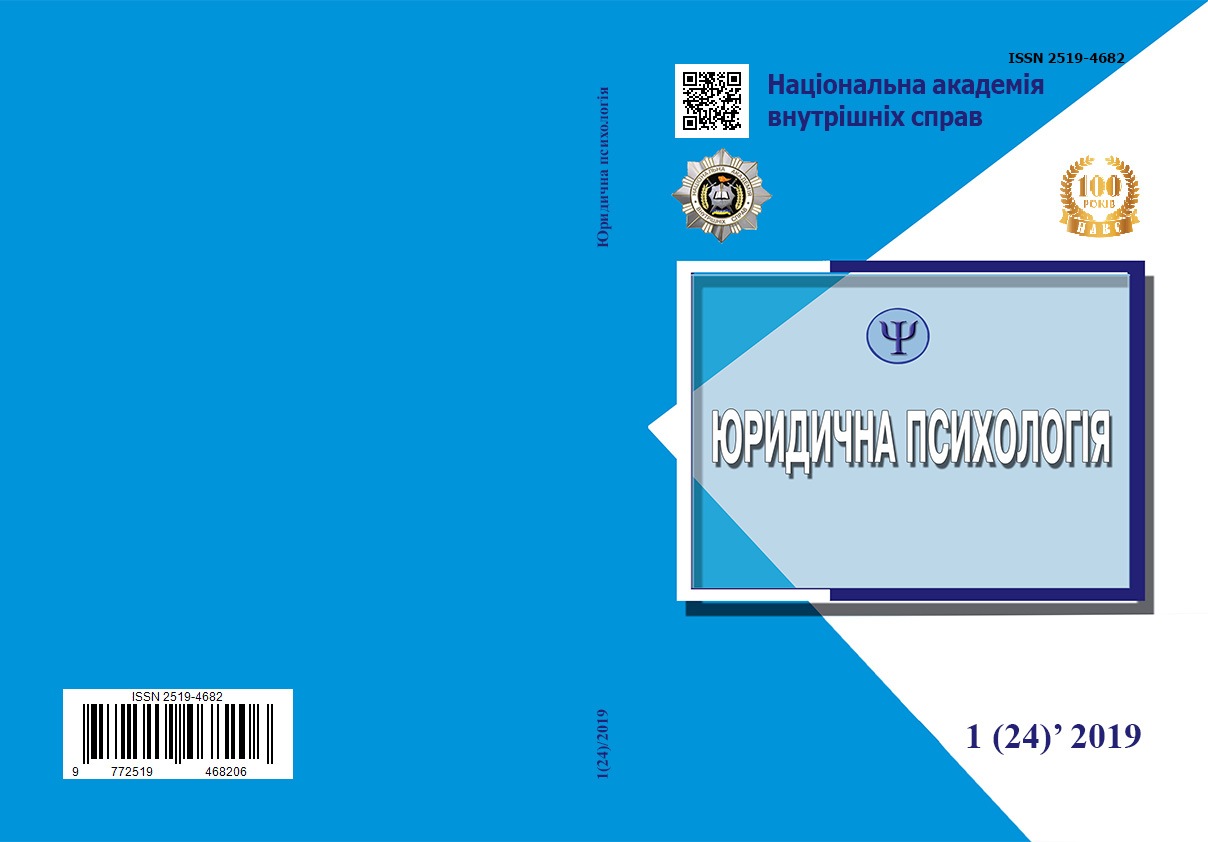Analysis of Modern Approaches to Increasing the Efficiency of Interrogation during the Pre-Trial Investigation
Abstract
The first purpose of the article is to show the current state of the scientific development of such investigative action as «interrogation». The article describes the changes of personal perception of «interrogation» in the world practice, under the great influence of new researches in the field of legal psychology, concerned the main disadvantages of the coercive methods of interrogation, and that is the second aim of the article. In addition, the third aim of the article is to conduct the research about the benefits of implementation interrogational methods in to the practices of law enforcement agencies in Ukraine and abroad. Methodology. Both general scientific and special research methods were used to prepare this work. There are historical, comparative, formal-logical, system-structural and functional methods worth to be highlighted separately. The main provisions and conclusions of the article are based on the scientific publications researches, legal literature and legislation analysis, unique investigative experience of the author. The scientific novelty of the research is to substantiate the demand for new approaches of conducting interrogations in domestic criminal practice. The author of the article proposes to adopt the experience of leading European countries in the field of procedural interviewing by the method of P.E.A.C.E. The author sees the need for further researches in this area, because the results of this will improve the investigative efficiency of law-enforcement bodies in Ukraine. It will also improve public confidence in the law enforcement system, and will provide fullest procedural protection of interviewee’s rights and freedoms. Conclusions. The results of the research indicate the following: 1) It is very important to study carefully the identity of the interviewee for objective and impartial evidence; 2) The author considers that methods of conversation, observation, modeling and biographical method are the most expedient methods to conduct forensic investigation of personality; 3) Establishing the psychological contact with person is main stipulation for forming effective communication between the investigator and the interrogatee. It is possible to achieve the purpose of the interrogation during such kind of communication more effectively. The author believes that additional courses should be introduced in the law enforcement education system of Ukraine in order to increase the effectiveness of pre-trial investigation, in which investigators could be provided by systematic and up to date information about the benefits of informative interrogation methods (interviews), like the PEACE method.
Keywords: interrogation; investigative interviewing; personality; personality research; psychological contact; interrogation tactic.
Downloads
Abstract views: 256 PDF Downloads: 508
- Authors reserve the right to authorship of their own work and transfer to the magazine the right of the first publication of this work under the terms of the Creative Commons Attribution License, which allows other persons to freely distribute published work with mandatory reference to authors of the original work and the first publication of an article in this magazine.
- Authors have the right to enter into separate additional agreements on non-exclusive dissemination of the work in the form in which it was published in the journal (for example, to post an article in the institution's repository or to publish as part of a monograph), provided that the link to the first publication of the work in this journal is maintained.
- The journal's policy allows and encourages the posting of articles by authors on the Internet (for example, in electronic storehouses of institutions or on personal websites), both before the submission of this manuscript to the editorial office and during its editorial processing, as this contributes to the creation of a productive scientific discussion and positively affects the efficiency and dynamics of citing the published work.




